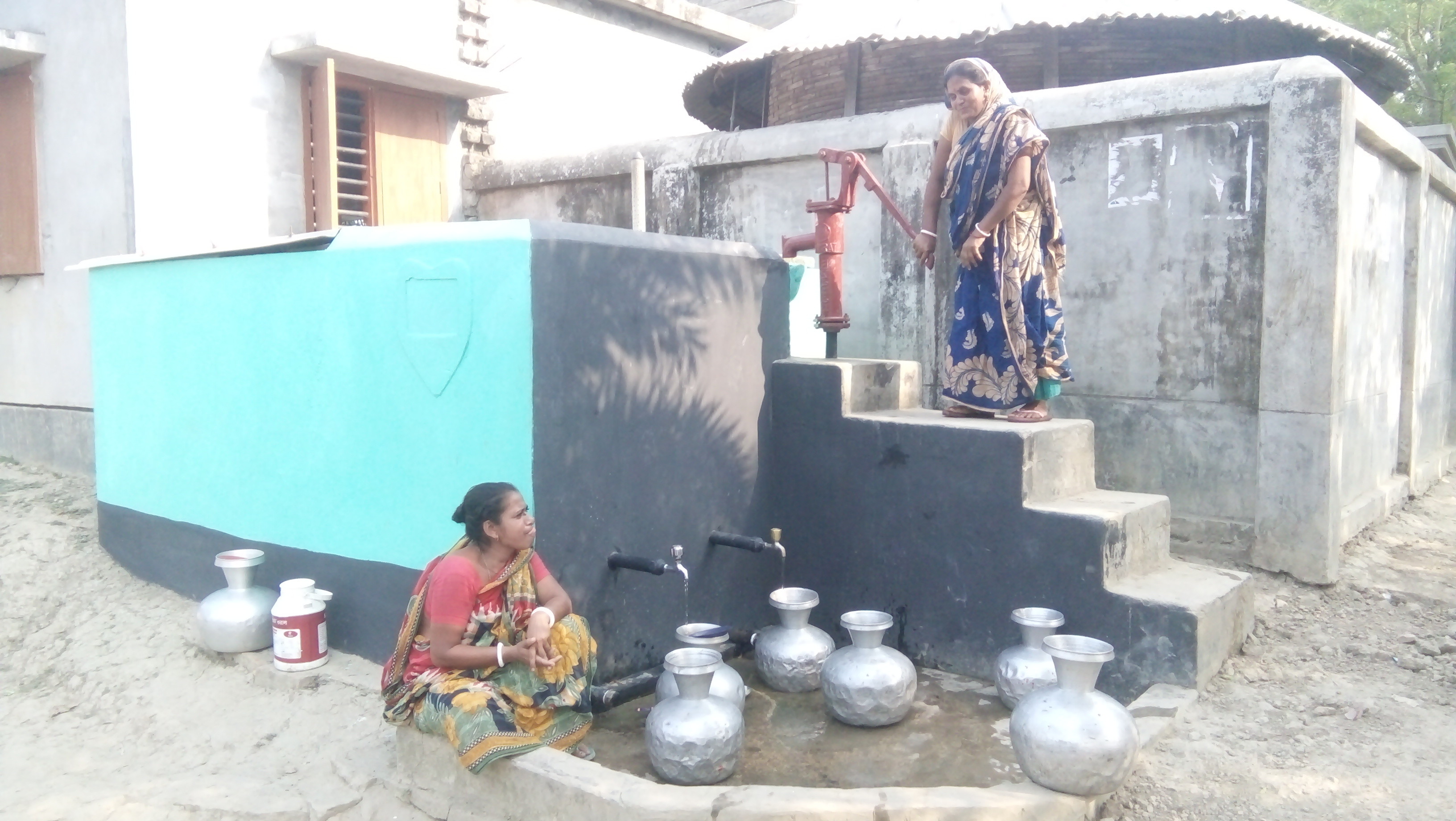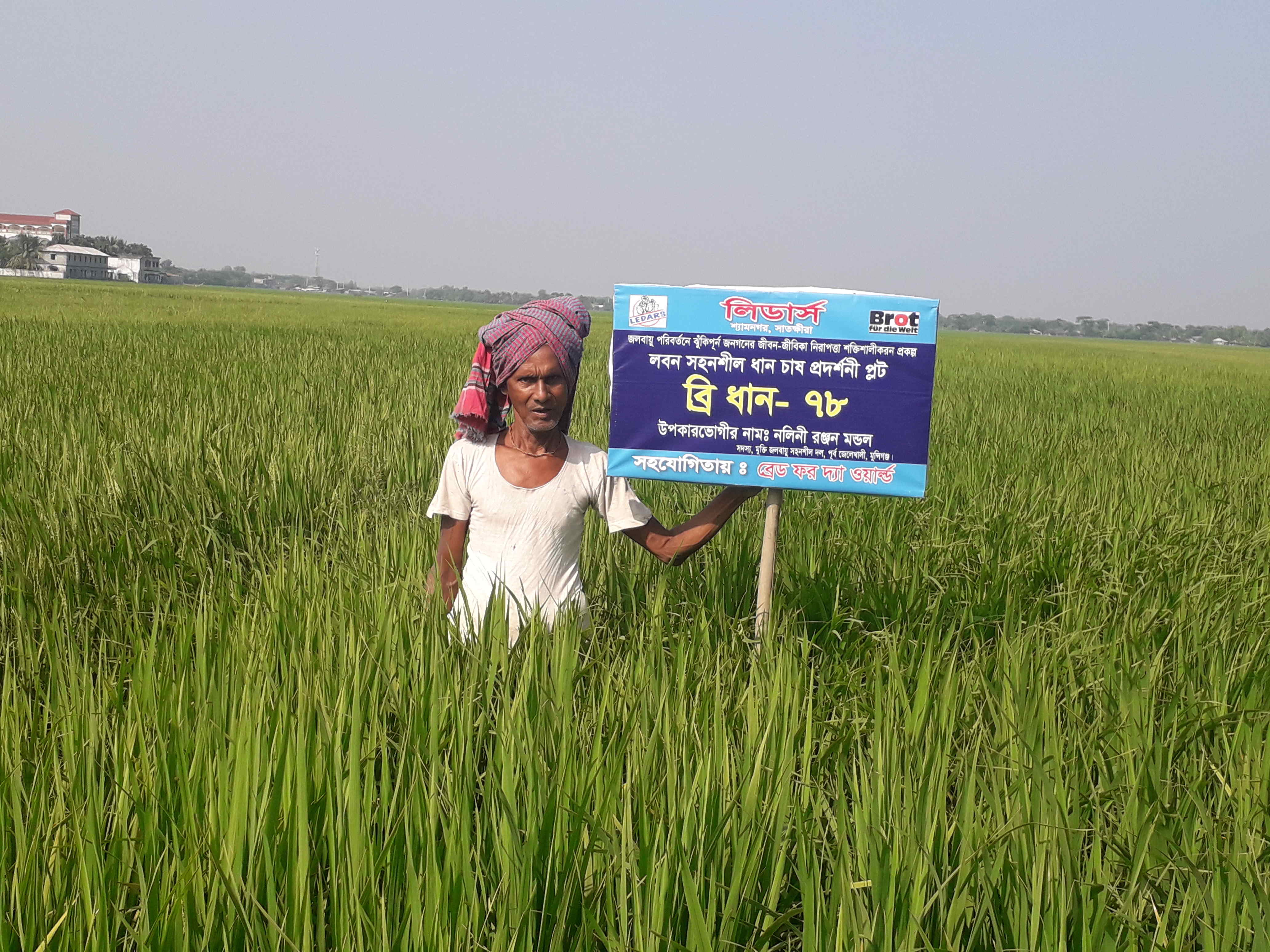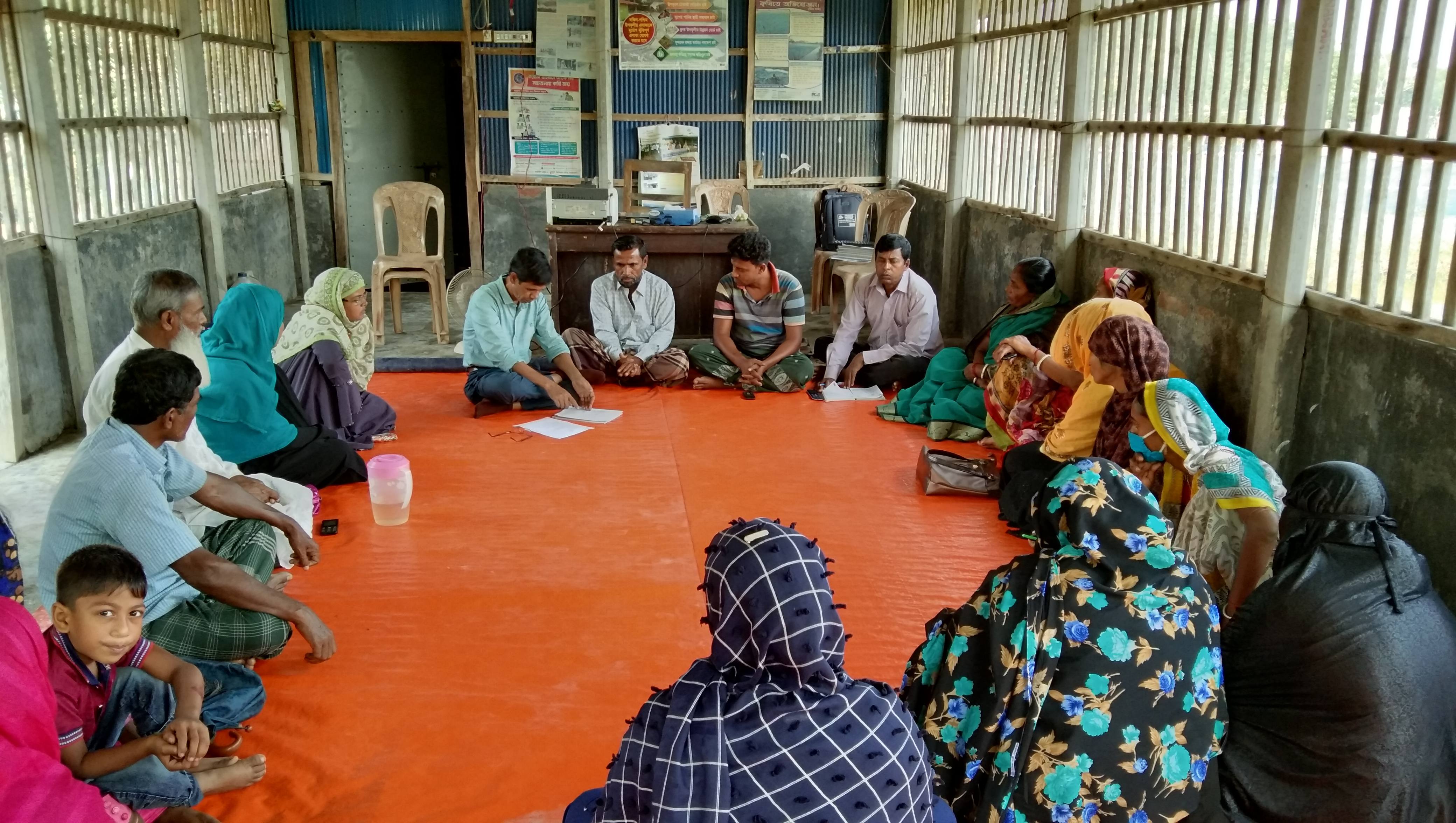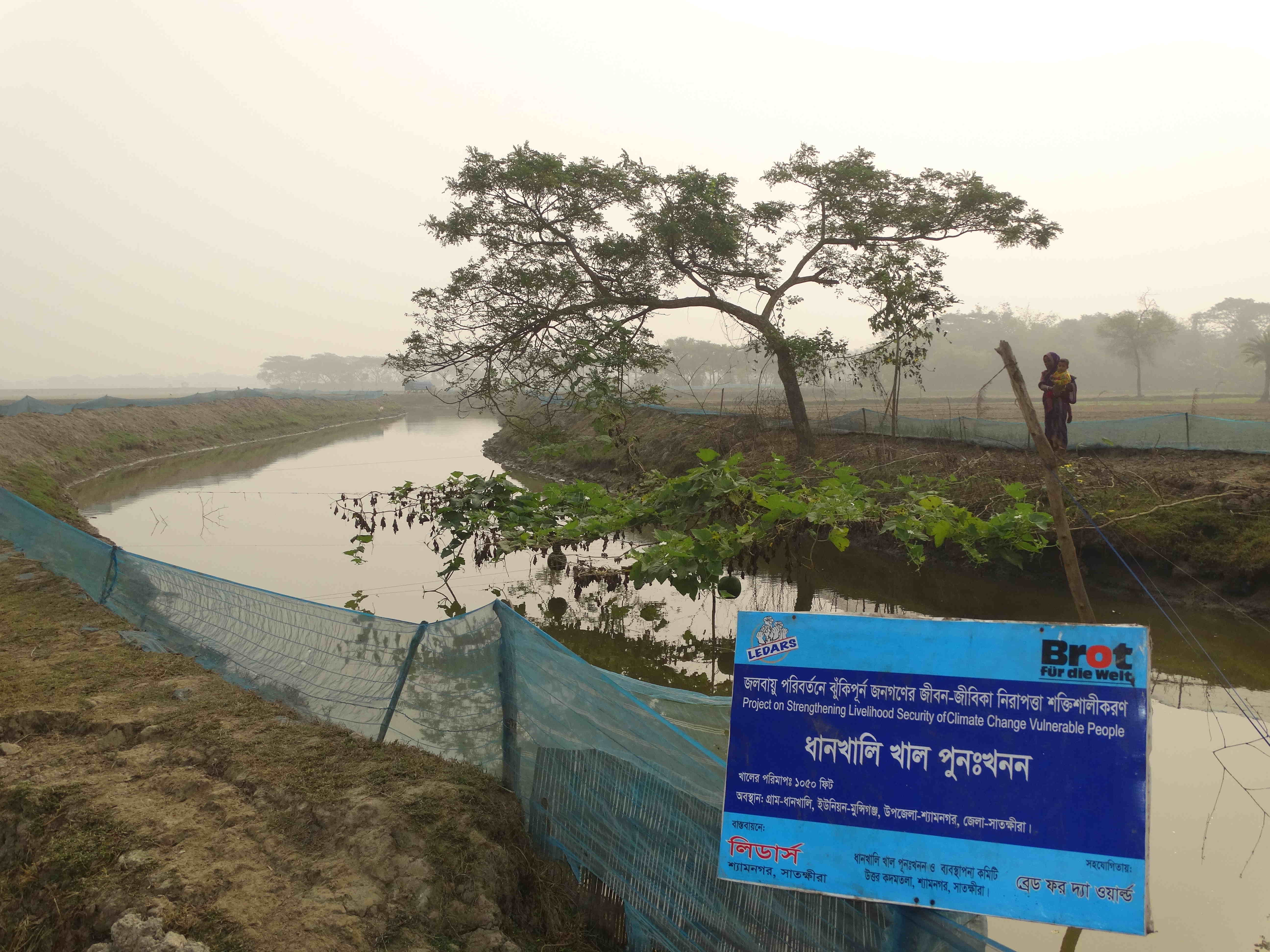Farmers forming climate resilient groups in Bangladesh
Devolve decision making
Build understanding
Invest in local capabilities
Ensure transparency and accountability
Organization: LOCAL ENVIRONMENT DEVELOPMENT AND AGRICULTURAL RESEARCH SOCIETY (LEDARS)
Donor: BROT FÜR DIE WELT
Beneficiaries: 5000
In the southwest of Bangladesh, coastal farming communities have formed climate cooperatives to plot risks and create shared action plans that are helping them to adopt saline tolerant agricultural practices and become self-sufficient again.
Bangladesh is one of the most vulnerable countries in the world to the adverse effects of climate change, which also makes it one of the most important locations in which to increase the adaptation capacity of local communities.
Like many other at-risk farmers in the coastal district of Satkhira in Bangladesh, Dipti Rani’s livelihood was threatened by rising levels of salinity caused by coastal flooding, tidal surges, rising sea levels, and the effects of two decades of high-intensity shrimp farming over the past two decades. This has resulted in severe water scarcity for both drinking and irrigation, which has in turn hampered crop cultivation significantly.

Determined to continue cultivating her land, Dipti sought help from the Local Environment Development and Agricultural Research Society (LEDARS), a non-profit and non-political organization that has been working for the social, economic and environmental development of poor and marginalized people in the southwest coastal region of Bangladesh for over 25 years.
As part of its intervention – Community level adaptation to climate change – LEDARS has provided technical and partial financial support to farmers like Dipti, enabling them to form cooperatives called Climate Resilient Groups that both manage collective activities and provide accountability. These groups, together with local government, participate in developing baseline surveys, conducting participatory risk assessments, and formulating community action plans. As a result, saline tolerant crop variants were identified as a potential solution to help farmers like her.

LEDARS then demonstrated and trained farmers in viable low-cost saline-tolerant paddy and vegetable cultivation through Climate Field Schools, and supplied seeds sourced from the Bangladesh Agricultural Development Corporation (BADC). This is crucial, as many people with experience in traditional agricultural practices do not have the specific knowledge to farm in areas affected by salinity and water scarcity.
Farmers also received training and support in building water management structures, such as reservoirs, ponds and canals, developing community seed banks to reduce their dependence on markets, deploying organic fertilizers and pest management techniques, and how to rear livestock and poultry. A 75-85 percent subsidy was provided for the saline tolerant seeds, while 70-80 percent of the costs of canal and pond excavation were covered by LEDARS. To provide further support, a revolving fund managed by community members was set up.

The technology and training have helped Dipti Rani to become self-sufficient again.
“I can easily earn 120,000 to 150,000 BDT [Bangladeshi Taka] each year,” says Dipti, which is about 1,180 to 1,480 US dollars. “This has not only secured my livelihood, but also helped me regain my dignity, honor and social status.”
In the 78 Climate Resilient Groups in Satkhira, 80 percent of the members are women, and while separate sessions are conducted for men, women, young farmers, indigenous communities and minorities, it is women that are in the driving seat. In addition, two groups also include so-called ‘Tiger Widows’ – women whose husbands were killed by tigers in the Sundarbans, the largest mangrove forest in the world, which forms part of the region. A large number of women from different women-headed families are involved in the program, with most of them directly undertaking implementation activities. In addition, successful female beneficiaries also contribute to promoting the program to local communities.

To date, LEDARS has helped install over 5,000 bio-sand filters, a rainwater harvesting system, Managed Aquifer Recharge (MAR) technology, and a water desalination plant, among other things – all dedicated for use by local communities. Total direct beneficiaries number over 3,500 people, although best practices have also been adopted by non-beneficiaries: a sizeable number of farmers, for instance, today cultivate saline tolerant paddy in areas where it was once very rare.
Success in Satkhira has prompted other farmers to adopt saline tolerant agricultural practices, including in neighboring districts. The number of farmers practicing these techniques has grown from 450 in 2012 to nearly 5,000 farmers in 7 Union Parishads, or local government bodies, in 2022.